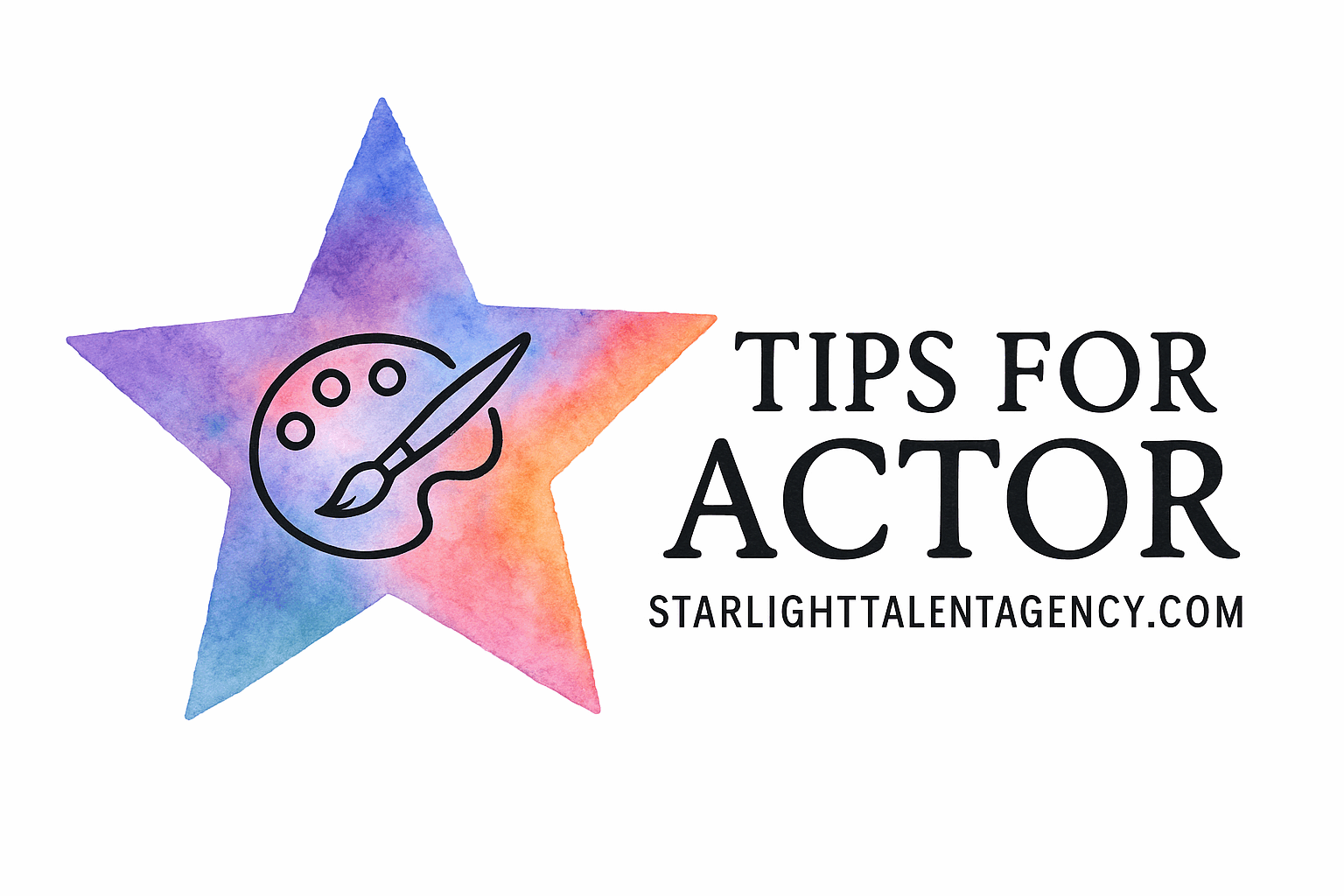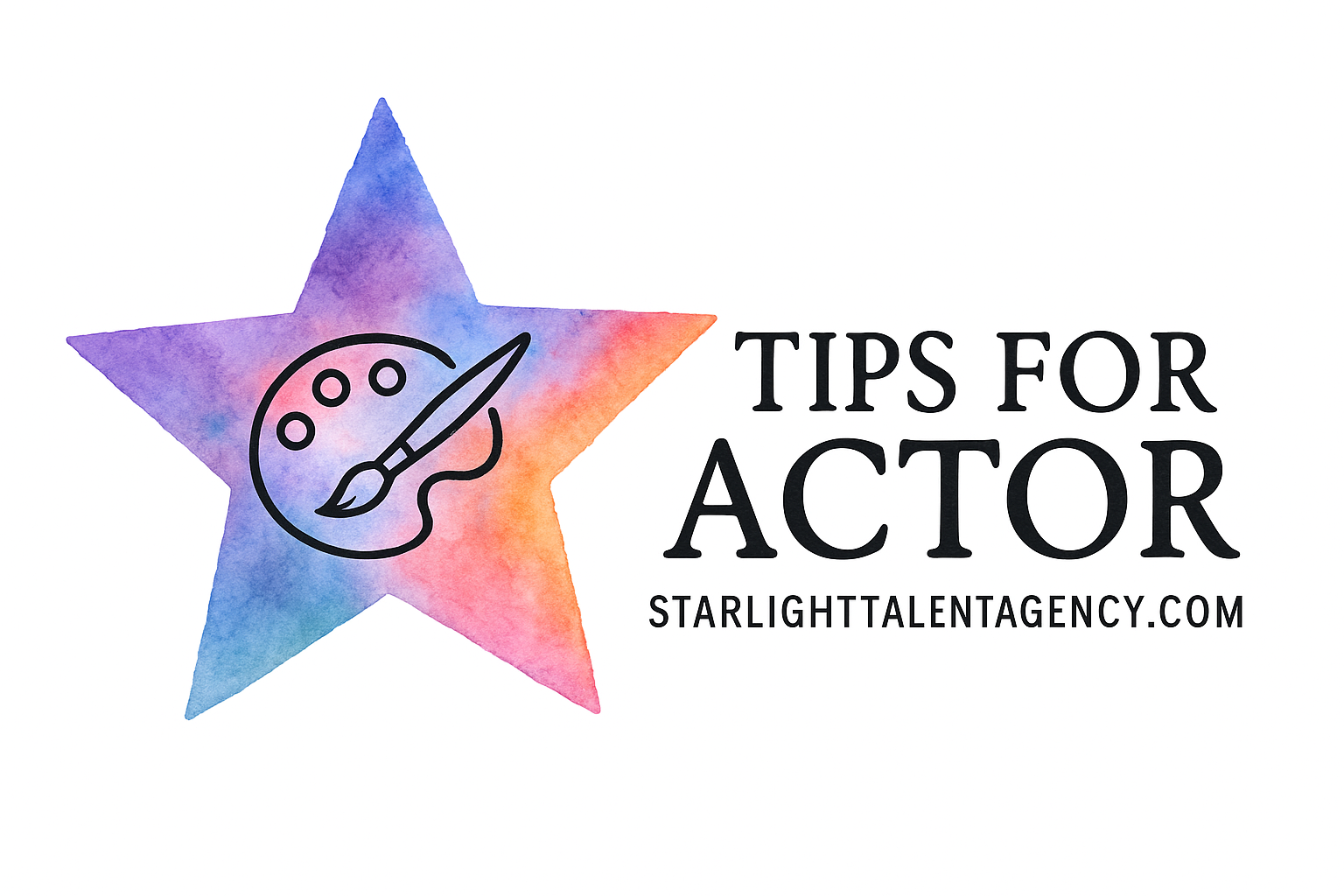Introduction: Why Partner Scenes Define Great Acting
Partner scenes are the lifeblood of acting. They showcase an actor’s ability to connect, listen, and respond truthfully. Whether it’s a romantic confession or a high-stakes argument, actor partner scenes reveal your emotional range and adaptability.
If you want to refine your performance, understanding the nuances of partner work is key. These six coaching tips for actor partner scenes—inspired by expert insights from Starlight Talent Agency—will help you bring your performances to life with authenticity and connection.
Understanding the Dynamics of Partner Scenes
The Emotional Exchange Between Partners
Partner scenes are built on emotional reciprocity. What your partner gives you emotionally, you must absorb and return with equal truth. This exchange is the pulse of every believable scene.
To develop this responsiveness, explore advanced audition skills that train you to stay mentally and emotionally present.
Building Chemistry and Connection
Chemistry isn’t accidental—it’s intentional. Through trust, vulnerability, and empathy, you create a shared rhythm. If you’re struggling to establish this bond, check out character development techniques to deepen your understanding of human behavior.

Tip #1: Develop Authentic Connection Off-Camera
The Power of Real Conversations
Don’t limit your relationship to the script. Grab coffee with your partner, talk about life, and find genuine common ground. This emotional bridge makes your on-camera relationship believable.
Building Trust During Rehearsals
Rehearsals aren’t just for memorizing lines—they’re for exploring emotional trust. Use audition preparation basics to set rehearsal routines that prioritize connection over perfection.
Tip #2: Master Active Listening Skills
Listening Beyond Words
True listening goes beyond hearing lines—it’s about sensing energy shifts, body cues, and emotional undertones. In expressive acting, listening is what keeps your performance organic and grounded.
Reacting in Real Time
Don’t plan your reactions. Every moment should feel spontaneous, as if it’s unfolding for the first time. This natural unpredictability is what makes your partner scenes magnetic.
Tip #3: Establish Clear Boundaries and Comfort Levels
Communication Before Rehearsal
Before diving into emotionally charged scenes, discuss comfort zones with your partner. This helps both actors stay safe and confident. You can find more guidance on emotional prep in acting confidence.
Respecting Emotional Space
Some actors need time to process emotions after intense scenes. Respect that. A healthy rehearsal environment builds trust and enhances performance quality.
Tip #4: Use Physicality to Support Emotional Truth
Understanding Role Physicality
Your body tells as much of the story as your words. Observe your partner’s movements—how they stand, move, or react—and mirror the rhythm. Learn more about this technique with insights on role physicality.
The Art of Controlled Movement
Don’t let your gestures overshadow your emotions. Subtlety is your best friend. For deeper mastery, read about body acting and discover how physical control amplifies authenticity.
Tip #5: Analyze the Scene’s Subtext Together
Digging Into Script Analysis
Every scene has layers beneath the dialogue. Sit with your partner and explore motivations, intentions, and hidden emotional beats. The script analysis guide from Starlight Talent Agency can help sharpen this skill.
Finding Shared Emotional Objectives
Even if your characters clash, you’re both working toward a common storytelling goal: truth. Aligning your emotional objectives builds unity and fluidity.
Tip #6: Practice Flexibility and Taking Direction
Adapting to Partner Choices
Acting is like jazz—it thrives on collaboration and improvisation. Stay open to your partner’s shifts in tone or emotion. Acting flexibility is essential for realistic, engaging partner scenes.
Learning from Director Feedback
A great coach or director can spot blind spots and redirect your energy effectively. Embrace feedback as a tool for growth. Learn more in taking direction.
Common Mistakes in Partner Scenes
Overacting or Overshadowing Your Partner
Trying too hard can ruin chemistry. Don’t compete—collaborate. Balance is what makes the connection believable.
Lack of Emotional Listening
When you focus only on your performance, you stop reacting truthfully. Emotional listening—one of the pillars of scene work—keeps the dialogue alive and responsive.
The Role of a Coach in Partner Scene Work
External Perspective and Scene Growth
A skilled acting coach provides objective insight. They can refine emotional timing, balance interactions, and push you past your comfort zone. Explore coaching tips for actors to find professional guidance.
How to Choose the Right Acting Coach
The right coach should challenge and support you equally. They’ll nurture confidence, emotional openness, and technical precision.
Applying These Tips in Auditions and Self-Tapes
Translating Connection On Camera
Even in auditions, chemistry matters. When performing with a reader or unseen partner, project authenticity through tone, eye contact, and emotional flow. Self-tape mastery offers expert insights on connecting through the lens.
Keeping It Natural in Self-Tape Acting
Avoid stiffness in front of the camera. Keep your gestures small but expressive. Explore self-tape acting essentials to improve your on-camera chemistry.
Conclusion
Mastering partner scenes takes more than memorization—it’s about listening, trusting, and connecting at a human level. By applying these six coaching tips for actor partner scenes, you’ll not only strengthen your craft but also create performances that feel real and memorable.
Remember, great acting lives in the in-between—the subtle looks, pauses, and emotional echoes shared with your partner. Refine that connection, and you’ll unlock your full potential as an actor.
FAQs
1. What’s the key to great actor partner scenes?
Emotional listening and authentic connection—without them, no scene feels real.
2. How can I build trust with a new partner?
Spend time off-camera and apply acting prep techniques to create a comfortable foundation.
3. Should I rehearse partner scenes solo?
You can, but collaboration is key. The emotional rhythm only develops in real interaction.
4. How can I handle an uncooperative partner?
Focus on your craft and seek guidance from a career coach who can help manage professional dynamics.
5. What makes physical acting effective in partner scenes?
Grounded physicality—learn more at stage gestures.
6. How do I translate connection to camera in self-tapes?
Focus on presence and emotional flow—see self-tape setup for details.
7. How often should I train with a coach for scene work?
Regularly! Coaching keeps your instincts sharp and your emotional range flexible.

